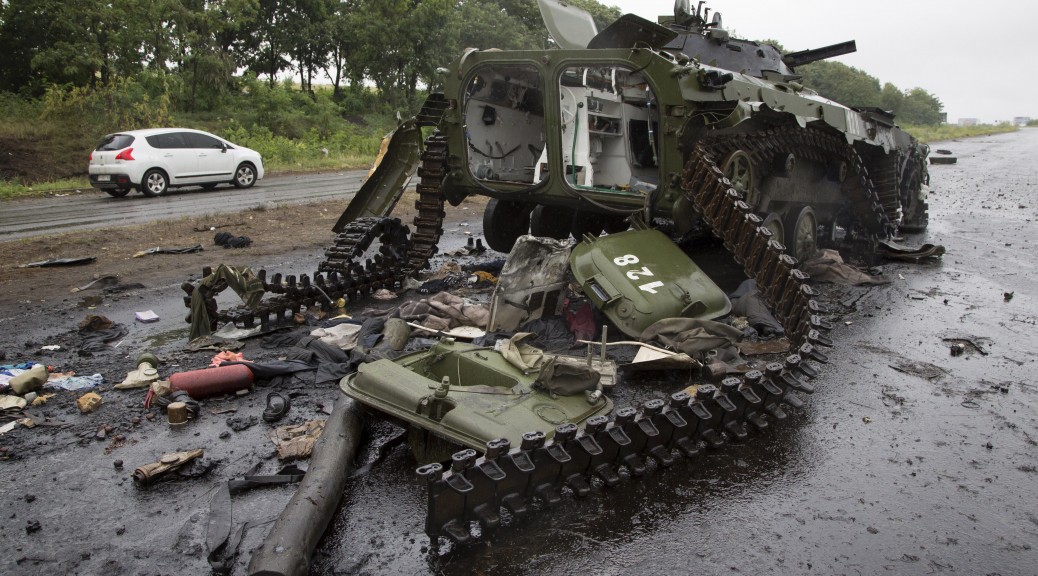The implementation of the Minsk Agreement, signed back in February 2015, is at an impasse. Both the Ukrainian and the Russian governments blame each other for the dreadful situation. Russia insists on Ukraine recognizing her political obligations under the Agreement. Ukraine, on the other hand, refuses to go ahead with the required legal reforms until Russian troops have left the Donbass region and the rebels have been disarmed. But the Russians claim that there are no Russian troops in the Donbass (contrary to what experts have proven numerous times). So how can they be withdrawn, the Russians argue. This is the mess, international mediation is currently set in.
In order to untangle the knot, the military part of the Minsk Agreement needs to be implemented in full and on a sustainable basis. Without a durable cease fire, the full exchange of prisoners and the withdrawal of heavy weaponry from the security zone, there is no prospect for a political solution. Reportedly, both sides violate the ceasefire, but the rebels on a much more frequent basis. Russia needs to use its leverage of the rebels for the violations to stop.
Once a sustainable ceasefire has been achieved, it is for Ukraine to go ahead with its own obligations. A constitutional reform providing for the decentralization of Ukraine, a law on the unlimited autonomous status of the Donbass region, a law on elections in that region and an amnesty law have to be passed by the Ukrainian parliament. Only if these steps are taken and elections in the Donbass region will be held, Ukraine will (probably) achieve its ultimate goal – regaining full control over the border between itself and Russia.
As it stands, these Ukrainian obligations will not be fulfilled, even if a sustainable ceasefire were to be established. There is no majority consensus in Kiev to pass these laws and there will not be in the future. This why we are at an impasse, regrettably so.
Moscow insists that Kiev adopts the constitutional reform and the other legislation before local elections can be held in the rebel controlled regions of the Donbass. Moscow endorsed the Franco-German proposal to hold these elections in June or July. Kiev, however, refuses to hold elections, before OSCE monitors don’t have full access to the Donbass conflict zone including the Ukrainian-Russian border and demands an OSCE police mission to guarantee the security during the elections.
But even if Moscow were to agree to these demands, which most likely it will not do, the current Ukrainian government is in no position to get any of the required legislation passed in the Rada as it lacks the majority needed for adoption.
The question arises, how long the Minsk process can continue without significant progress. France and Germany stand to lose their credibility if both warring factions continue to ignore the Agreement.
Foto: http://www.japantimes.co.jp/news/2014/07/08/world/politics-diplomacy-world/putin-silent-fighting-slaviansk/#.VtiT25PhBBw

